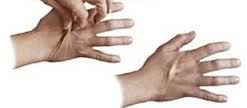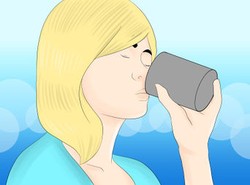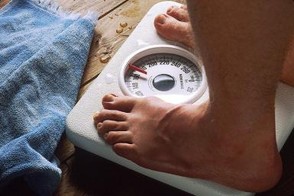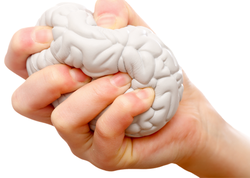Mild to moderated dehydration is usually not dangerous. Symptoms can include thirst, dry mouth and lips, fatigue and mild headache. Severe dehydration can cause serious complications, including death. In ideal circumstances, you may survive for up to 7-8 days without water and food. When you are severely dehydrated and you are in a hot environment, your body can not produce much sweat and thus can not dissipate the body heat, which can result in a sudden life-threatening raise of body temperature. When you do not drink enough, your kidney may not be able to excrete harmful wastes from your body, which can result in acute kidney failure.

Dehydration Complications
by greentree
Dehydration is a lack of water in your body. Severe dehydration can result in heat stroke and hypovolemic shock.
Dehydration Symptoms and Signs
Dehydration symptoms and signs depend on how much water you lose from your body.
When you are mildly dehydrated (1-3% body weight loss), you will be probably thirsty and you might have dry mouth. If you continue to lose water (4-6% body weight loss), your lips may become dry and you may feel tired and lightheaded. You will also excrete less urine, which will probably be darker than usually. In severe dehydration (>6% body weight loss), you can become very thirsty and tired and can have severe headache. Your heart rate will likely beat fast and you might excrete little or no urine, which may become dark brown. When you lose more than 10% of body weight due to water loss you can lose consciousness or die.
Negative Effects of Dehydration
Decreased Physical Performance
Dehydration that results in greater than 2% loss of body weight can decrease physical performance. This may be important during a long-lasting exercise, such as marathon. Marathoners do not need to completely rehydrate themsleves during the race but can stay mildyl rehydrated and stiil keep their performance at the optimal level.
Orthostatic Hypotension
In individuals with orthostatic hypotension--a drop of blood pressure upon standing--dehydration can worsen symptoms, for example, fainting after getting up in the morning.
Drinking about 300 to 500 mL of water 15 minutes before getting up can prevent orthostatic hypotension in sensitive individuals.
Other Negative Effects of Chronic Dehydration
- Chronic fatigue
- Decreased concentration, poor memory
- Worsening of asthma or allergies
Dehydration Dangers
Heat Exhaustion and Heat Stroke
In hot weather, especially at temperatures exceeding 90 °F (32 °C) when you do not drink enough, you may experience two possible complications:
- Heat exhaustion with profuse sweating, cool skin, increased body temperature (up to 40 °C), dizziness and headache
- Heat stroke with warm, dry skin, severely increased body temperature (over 104 °F or 40 °C), severe fatigue and impaired consciousness
Small children, elderly and those who work physically in hot weather are at greatest risk of heat exhaustion or stroke.
First aid in heat exhaustion or stroke:
- Move an affected person to a cool place or at least out from the direct sun and place him or her in a lying position with slightly elevated legs.
- Remove any unnecessary clothing.
- Give a person cold water to drink but not more than 1.5 liters per hour to avoid water intoxication (hyponatremia).
- Enable him or her a cool (60-65 °F or 15-18 °C), not cold, shower or bath or wrap him or her with cool wet towels.
- If the above measures do not seem to help within an hour (no drop of body temperature, worsening of symptoms), take the person to the hospital or call a doctor as soon as possible.
- In severe dehydration, a person may need an intravenous infusion of saline. If an infusion is not available, a person should get an oral rehydration solution (ORS), which contains salt.
Hypovolemic Shock
Severe dehydration (>10% loss of body weight) may result in a drop of blood volume, which may result in an inadequate perfusion of the tissues and, eventually in multiple organ failure.
Early symptoms and signs of hypovolemic shock include anxiety, clammy skin and increased and weak pulse; late symptoms and signs include a drop of blood pressure, loss of consciousness and, eventually, death.
Hypovolemic shock needs to be treated promptly by intravenous saline infusion, otherwise it may result in death or permanent organ damage.
Acute Kidney Failure
In severe dehydration, the kidneys are no longer able to excrete waste products of metabolism, such as urea, which starts to accumulate in the blood and cause uremia.
Symptoms: nausea, vomiting, impaired consciousness, very little or no urine.
Kidney Stones
If you are chronically dehydrated, you are at increased risk of developing kidney stones. If you regularly drink sufficient amounts of water you may prevent kidney stones, but drinking large amounts of water in excess of your body needs may not have any further benefits.
 | RecoverORS for Hangovers, Food Poisoning, Diarrhea RecoverORS is an oral rehydration powder specifically designed for the adult body. RecoverORS is made by pharmacists and in accordance with World Health Organization (WHO) guide... |
How much water do you need to drink per day?
Healthy, sedentary adults living in moderate climates may need 1.2 to 3.7 liters of water per day from beverages and foods combined. Active individuals in hot climates may need up to 10 liters of water per day.
The most reliable method to check if you are well hydrated is to weigh yourself. Once, when you know you are well hydrated, which means you have no symptoms of dehydration, weigh yourself in the morning after urinating and emptying your bowel and before breakfast. You can then consider your measured weigh as your normal body weight. Next time you want to check if you are well hydrated, weigh yourself in the morning in the same conditions and in same clothes; if your body weight is more than 1% lower than the first time, you are probably dehydrated.
A simpler and quicker, but less reliable, method is to check your "skin turgor," that is your skin elasticity. Pinch and pull up the skin on the back of the hand (between the index and thumb) and release it. When you are well hydrated, the skin fold should flatten immediately (in less than 0.5 seconds) and when you are dehydrated, the skin fold may need more than a second to flatten.
Thumbnail image source: WikiHow (Creative Commons licence)
 Skin turgor assesment |
You might also like
How to Lower Cortisol Levels Reduce Stress Hormone and Improve...Cortisol is a steroid hormone regulating metabolism, the immune system and ai...
Walking Your Way to HealthThere is much research that shows that walking is beneficial to body and mind.




 Fructose Malabsorptionon 03/19/2016
Fructose Malabsorptionon 03/19/2016
 Scientific Facts About Sugars and Other Sweetenerson 03/17/2016
Scientific Facts About Sugars and Other Sweetenerson 03/17/2016
 Headache on the Back of the Headon 03/11/2016
Headache on the Back of the Headon 03/11/2016
 Alcohol-Related Headacheon 03/09/2016
Alcohol-Related Headacheon 03/09/2016



Comments